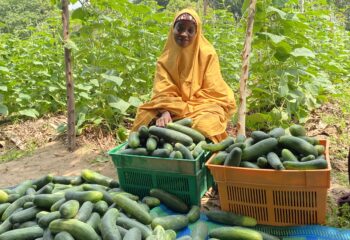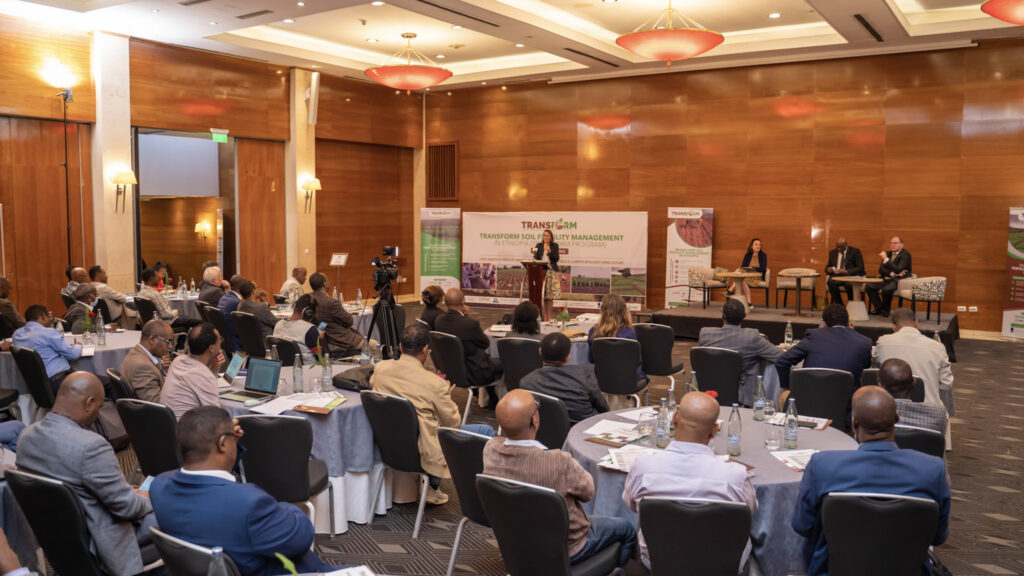
On April 3, participants from the donor community, development organizations, governments, the private sector, and civil society gathered in Addis Ababa, Ethiopia, for the official launch of the Transform Soil Fertility Management in Ethiopia (TRANSFORM) project. The event marked the beginning of a new initiative to restore soil health, boost agricultural productivity, and empower farmers across the country.
TRANSFORM, funded by the Embassy of the Kingdom of the Netherlands and the European Union, aims to sustainably increase the productivity of 100,000 small-scale food-producers and enhance the sustainable use of 65,000 hectares of farmland in Amhara, Oromia, and Central Ethiopia Regional State. The project plans to achieve these goals through active, inclusive, farmer-led approaches.
“By promoting the adoption of better soil health management practices, we aim to improve soil quality and significantly enhance the food security of farmers who rely on land for their livelihoods.”
Dr. Tolessa Debele, TRANSFORM Project Director
At the launch event, every speaker emphasized the urgency of restoring and sustaining Ethiopia’s soil health to ensure resilient and productive agriculture.
TRANSFORM Project Director Dr. Tolessa Debele began, stating, “At the heart of this program is a commitment to empowering farmers and communities. By promoting the adoption of better soil health management practices, we aim to improve soil quality and significantly enhance the food security of farmers who rely on land for their livelihoods.”
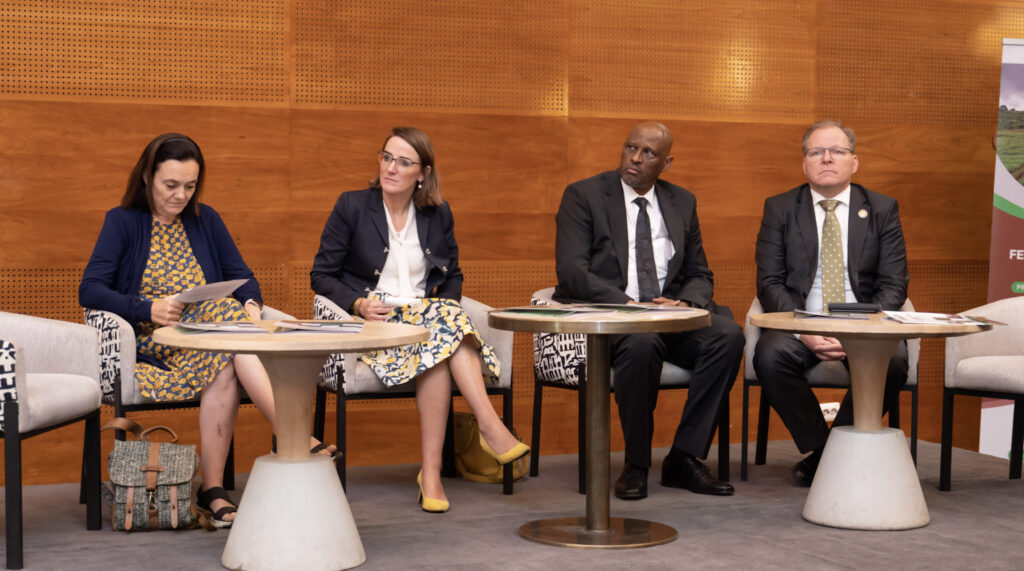
TRANSFORM will focus on improving the availability and accessibility of quality organic fertilizers to reduce reliance on imports. Additionally, the project will also promote collaboration among government entities, non-governmental organizations (NGOs), and the private sector to create an enabling environment for effective soil health management.
Dr. Debele also explained that TRANSFORM’s extension services will be tailored to farmers’ unique needs, using the Participatory Integrated Planning (PIP) approach that places farmers at the center of decision-making in sustainable land management. This strategy ensures that solutions are rooted in practical knowledge and experience, increasing their relevance and adoption.
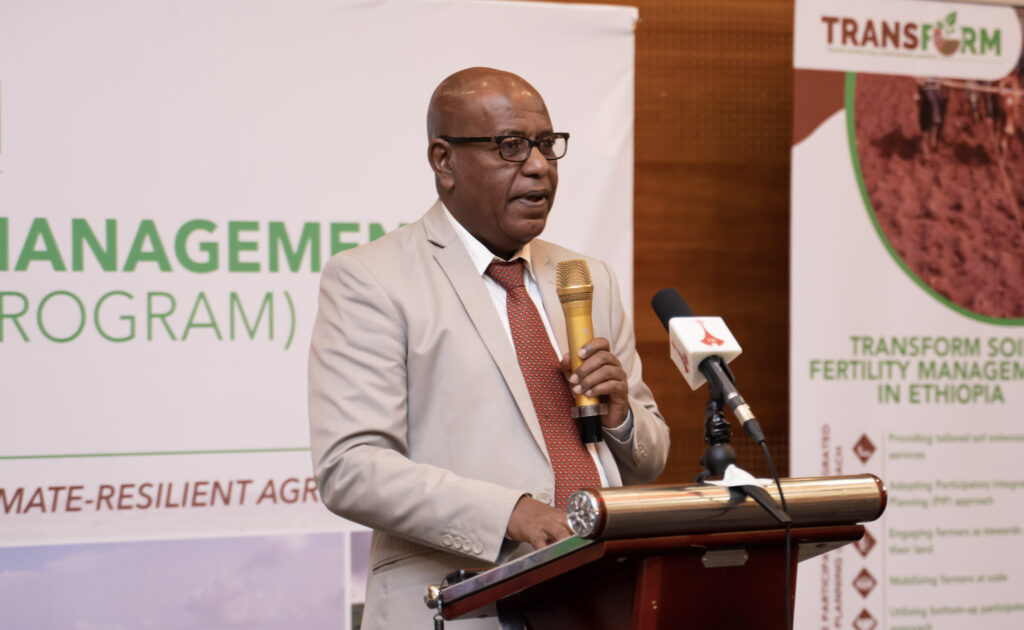
The State Minister from Ethiopia’s Ministry of Agriculture, Professor Eyasu Elias, described the launch as “not just about starting a program, but about igniting a movement toward healthier soils, more resilient farming systems, and empowered communities that will drive agricultural prosperity in Ethiopia.”
Elias praised TRANSFORM for its holistic approach that blends modern technologies with indigenous knowledge and integrates both organic and inorganic soil management strategies. He emphasized the importance of fostering partnerships among governments, development partners, NGOs, and the private sector.
Henk van Duijn, President and CEO of IFDC, pointed out the project’s alignment with national and continental priorities and calling it “the backbone of the African Union’s 10-year Africa Fertilizer and Soil Health Action Plan (AFSH-AP).” He commended Ethiopia for its leadership in agricultural investment planning and its commitment to implementing the ambitions of both the AFSH-AP and the Comprehensive Africa Agriculture Development Programme (CAADP).
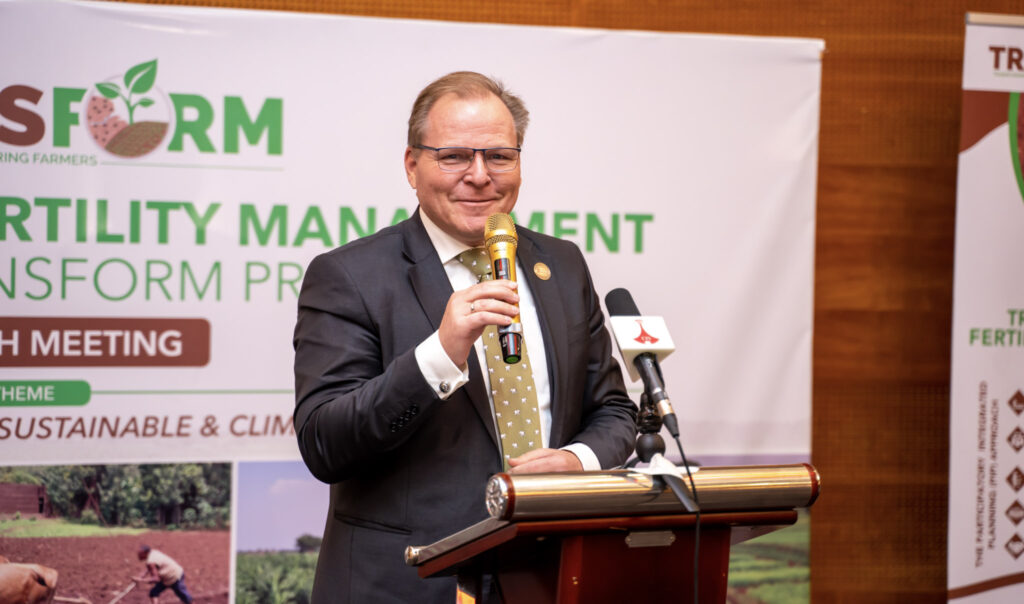
Paula Schindeler, Deputy Head of Mission for the Embassy of the Kingdom of the Netherlands in Ethiopia, highlighted the project’s focus on empowering smallholder farmers, including women and youth, to become better stewards of the land.
“TRANSFORM represents a significant milestone to improve food and nutrition security and reduce poverty, because healthy soil is the foundation of sustainable agriculture,” she observed.
TRANSFORM builds on the Ethiopian Government’s broader goal to boost crop production by 60% between 2021 and 2030 through improved soil fertility management. Despite the strides already made through increased fertilizer access, seed quality, and training, significant yield gaps remain, largely due to deteriorating soil conditions caused by acidity, salinity, nutrient depletion, and erosion, all of which TRANSFORM seeks to address.
Schindeler’s thoughts were reaffirmed by European Union Senior Policy Officer Mercedes Marin Nortes, who stressed the need to reverse soil degradation through integrated soil fertility management. She noted that soil degradation costs Ethiopia approximately U.S. $1.2 billion annually, underlining the urgency and economic importance of addressing soil health.
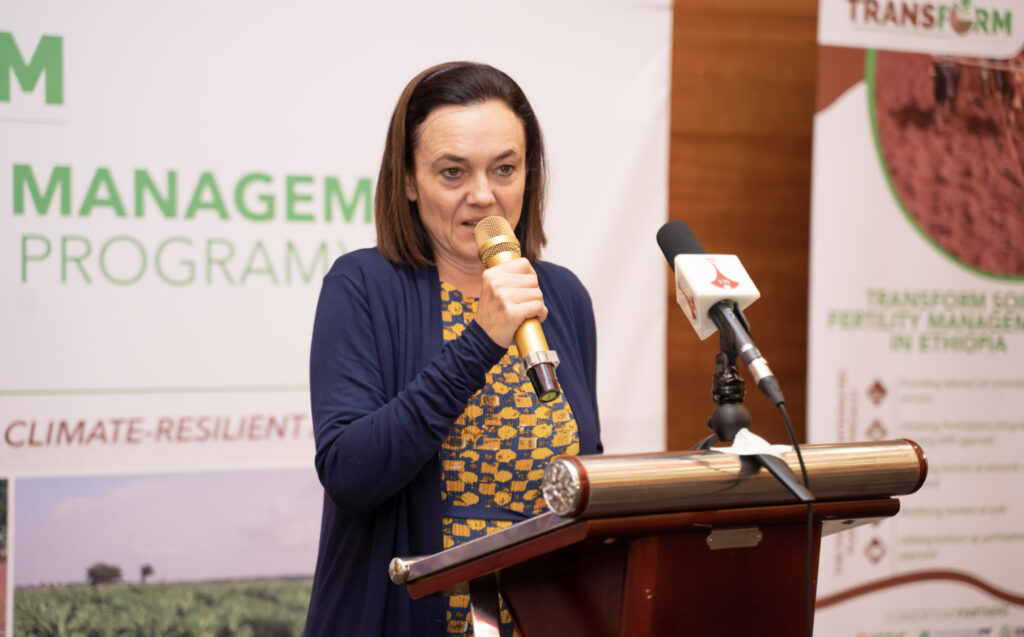
Other speakers from the project’s implementation consortium delivered a unified vision for TRANSFORM, remarking on it not only as a program, but also as a catalyst for long-term, systemic change.
Ultimately, TRANSFORM will strengthen households by improving soil health and fertility management, resulting in higher crop productivity, increased incomes, better food security, and improved livelihoods. It will also rehabilitate farmlands through integrated land management approaches that enhance soil quality, foster biodiversity, and improve water use efficiency, making farming systems more resilient.
By prioritizing soil health restoration and the development of resilient farming systems, Ethiopia is making a crucial investment in its food security, economic advancement, and environmental sustainability.
The TRANSFORM project (2025-2028) is funded by the Embassy of the Kingdom of the Netherlands and the European Union and is implemented by a consortium comprising the International Fertilizer Development Center (IFDC), Wageningen University & Research/Wageningen Environmental Research, ISRIC – World Soil Information, Environment and Coffee Forest Forum (ECFF), and SOS Sahel Ethiopia.



